Once Upon a Time = Guilt + Nostalgia
The show is equal parts genius and cringy
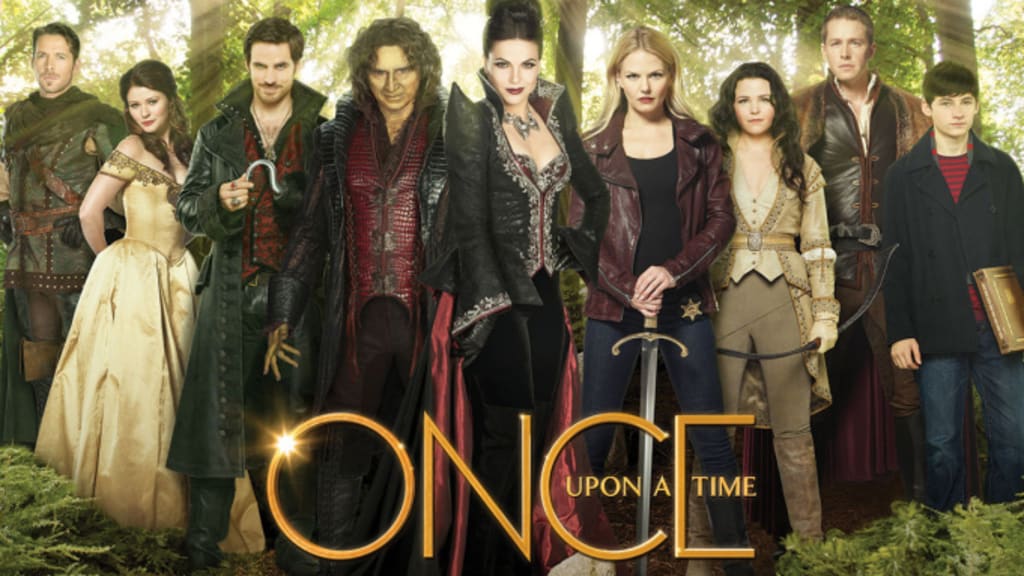
You like stories. You read, write, and teach stories. It’s just like Brothers Grimm… It’s just like fairy tales… You’re watching it for the stories.
This is what I told myself repeatedly to make myself feel better about my guilty pleasure: Disney’s Once Upon a Time.
The show had been on Netflix for a couple of years before I stumbled upon it. Despite its popularity, I knew immediately that I didn’t have a single “Did you see the episode where…” friend. I also knew that I was hooked.
I really do like stories, and how we transitioned some of the most gruesome, graphic tales into something happy and animated for toddlers amazes and amuses me. I’m a '90s kid which means I had two things: a Tamagotchi banned by my public school and an absurd collection of Disney VHS tapes.
You want to hear a full transcript with musical numbers from The Little Mermaid, The Lion King, Beauty and the Beast, Pocahontas, or Hercules? Just ask the elementary school version of me and I’ll entertain you for hours. Also Mulan… 101 Dalmatians… Flubber… Fern Gully… Peter Pan… Cinderella… You get the idea.
So it’s not so much “I like stories” as it is “I like nostalgia”.
And I do.
But Once isn’t something you can tell your friends about. And if you do make that mistake, you have to shrug it off with a “I was just kidding” or “It’s not that good”.
But I wasn’t. And it is.
So let’s talk about what makes the first six seasons of Once so amazing and also so cringe-worthy.
Emma and Killian

This relationship has been discussed ad nauseam by every Once blogger, so I’ll keep this short. Yes, they’re an amazing fictional couple. Yes, some of their interactions make me queasy. Yes, we all want “a love like that”. Let’s move on.
Multidimensional Characters
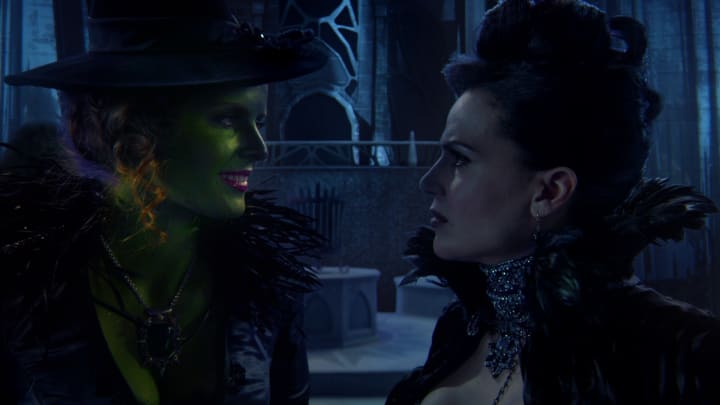
Pleasure: Once is excellent at creating vivid, complicated characters that make us feel. Sometimes we love them; sometimes we hate them. Sometimes the villain becomes the hero; sometimes the hero becomes the villain. We might root for them one episode and scream at them the next. I have zero complaints about the depth of the characters.
Guilt: The clichés make me facepalm. Hard. Snow and Charming are by far the worst and I really should be rolling my eyes instead of staring at the television. Everything from “we can share one heart” to “pureness” is just over-the-top. It’s telenovela-level sweet, but with less drama and fewer plot twists. Your friends who hate it have a point. It is beyond sappy.
People of Color and LGBT+ Characters

Pleasure: There were barely a handful of non-White characters when the show began, so Mulan, Tamar, Aladdin, Jasmine, and others were welcome additions. Mulan is likely the first LGBT+ character, but it’s Ruby and Dorothy who eventually steal the show in that respect. Diversity is good.
Guilt: The minorities always seem to be overshadowed, killed off, or underwritten. And Disney is incapable of committing to a LGBT+ storyline the way it can with heterosexual couples. This TV-14 show gives us a pretty personal look at the love lives of Snow/Charming and Emma/Killian but stays relatively vague with Ruby/Dorothy (and Mulan/Aurora). “Did you see their kiss?” should not be the LGBT+ highlight of a show.
Rumple and Hook

Pleasure: Robert Carlyle's Rumple quickly became my favorite actor and character. When Colin O’Donoghue joined the show, they tied. The idea of putting all fairy tale villains into a single time-travelling Rumplestiltskin was brilliant and made the story significantly more captivating. Adding a tormented, complicated Captain Hook and making their stories intertwine? Even better.
Guilt: Rumple is so well-written that I never knew which side he was on. Ever. By the fifth season I thought maybe the new version was kind, but I was literally guessing his motives until the very last episode (of Season 6). Hook is the same way for a large part of the show. It’s a little overdone. “If I get a real hand I’ll turn into a jerk” is just a ridiculous storyline and the audience should be able to have an understanding of the “villain” within five years. For people looking for a simple escape, this isn’t it.
Emma and Regina
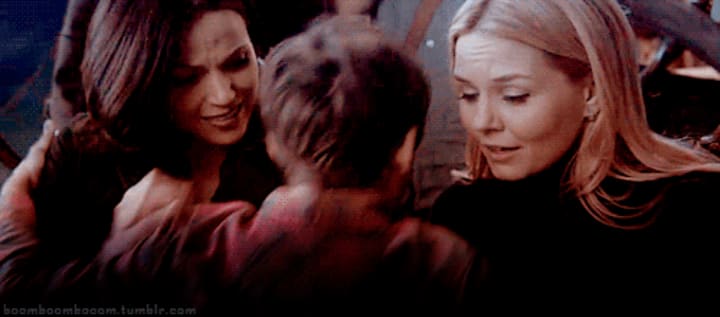
Pleasure: A show that takes an honest look at the biological versus adopted mothers’ roles (especially when both are single) deserves credit. Although Regina is clearly made out to be an early villain, it’s hard to completely despise her, considering she has been a single mother to her son while his biological mother was nonexistent. This relationship remains complicated for a very long time, and ultimately they decide they can both love their child. It’s a feel good moment.
Guilt: Does the biological mother--who asked for a closed adoption--have the right to just take the child back if she feels like the adoptive mother is “evil”? Can we simply ignore that Regina really is emotionally abusive at times? Or that Emma isn’t always the most involved parent? If you’re in social work or education, you’re going to find parts of this hard to watch, just like I did.
Rumple and Belle

Pleasure: This show definitely furthers the idea that we all deserve love and that we can find someone who will love us for who we are. Belle’s kindness makes Rumple a better person and we love to watch him transform when he’s around her. That relationship gives us warm feelings.
Guilt: Yeah, this is Stockholm Syndrome. Like, by definition. And one of the most codependent relationships I’ve ever seen on television. Ever. If you take out the fairy tale element, we should really be screaming: “Run! Get out of there! What are you doing?!” We should all feel a little guilty for rooting for this relationship to work out.
Rumple and Baelfire
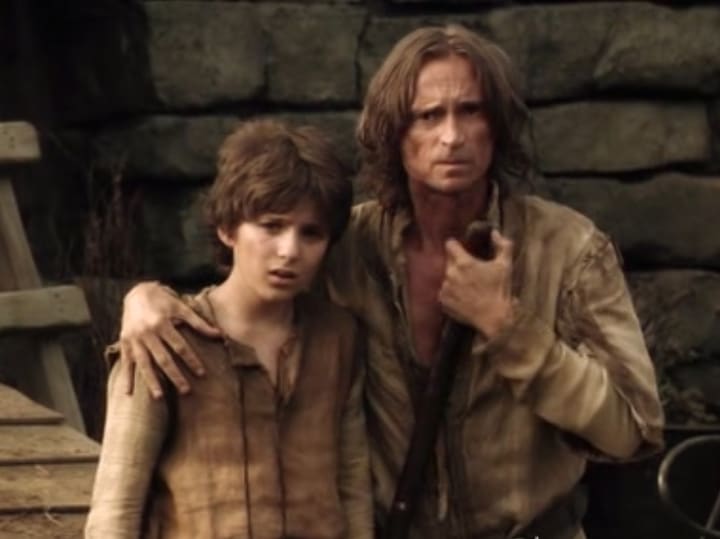
Pleasure: A complicated father-son relationship is something we should encourage. The idea of the mother abandoning her child and the father staying, is especially refreshing. It’s clear that Rumple loves his son and would do anything for him, even when Baelfire is grumpy and pouring on the guilt.
Guilt: Rumple lets his anger get the best of him and makes some terrible choices that are hard to forgive. Knowing that, the show doubles down on his lapses of judgement and tries to convince us that a well-formed survival instinct should be considered cowardice. Not to mention Rumple shortening his son’s name to Bae, which was easily one of the most popular pieces of slang during the show’s tenure. It ends up feeling simultaneously overwritten and transparent.
Season 4

Pleasure: The addition of Frozen characters adds a new layer to the show.
Guilt: This was when my “I love stories” line stopped working. To assuage my guilt, I would attempt to skip the Frozen-related scenes and stick with the core characters. But the show is a spider web and I ended up watching nearly all of them anyway. I will never be rid of the guilt of watching Elsa and Captain Hook try to exist in the same universe. Yikes.
Other Wonderful Pleasures & Horrible Guilt Trips
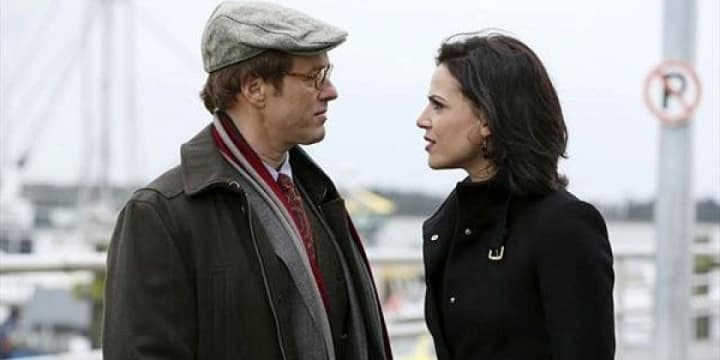
Pleasure: Wait, Pinocchio can turn back into wood?! Awesome.
Guilt: I was shaking my head by the time Peter Pan became Henry’s great-grandfather. The family tree is a little much.
Pleasure: Jiminy Cricket makes the perfect therapist and Pongo pet parent.
Guilt: Similar to the Emma and Regina dynamic, Zelena’s parenting storyline makes me uncomfortable.
Pleasure: While I’ll always love James Woods’ version, Greg Germann portrays an impressive Hades.
Guilt: Ginnifer Goodwin said early in the show that Snow and Charming would not be okay with their daughter being romantically involved with a character who had been in love with Henry’s grandmother. And that’s exactly what happened. Fans tend to forgive or ignore that piece of history, but it does feel a bit slimy.
Pleasure: The Wicked Witch being green with envy was a creative explanation for her coloring, and the Wicked Witch and Evil Queen being sisters was a great twist.
Guilt: The hypocrisy gets a little hard to stomach. Snow and Charming refuse to kill the Evil Queen, despite having killed other people. Characters constantly break promises and manipulate one another before trying to convince us that they have the moral high ground. A true fan has to push past some plot holes and character flaws to continue to watch.
Pleasure: The musical episode was excellent and allowed these accomplished actors to demonstrate their vocal abilities. (For the record, O’Donoghue is just as impressive live.)
Guilt: While I adore August’s character, making Henry the writer of the stories became a little meta and broke the fourth wall more than you want in a fantasy-driven drama. Despite it technically making sense for the character, it comes off as lazy writing for the show.
Conclusion

I don’t regret the hundreds of hours I spent watching this wonderful show, nor do I regret keeping it a secret from my friends. Robert Carlyle and Colin O’Donoghue still make me smile, and Once will always be special to me.
After all, I do love stories.
About the Creator
Alex Casey
I'm a full-time educator and part-time writer. My best ideas usually end up on Vocal.


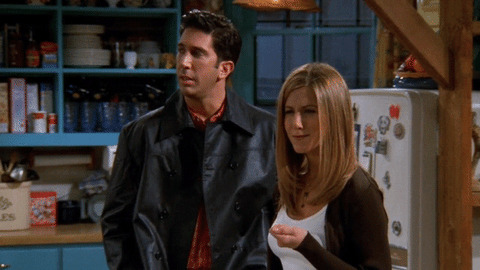



Comments
Alex Casey is not accepting comments at the moment
Want to show your support? Send them a one-off tip.